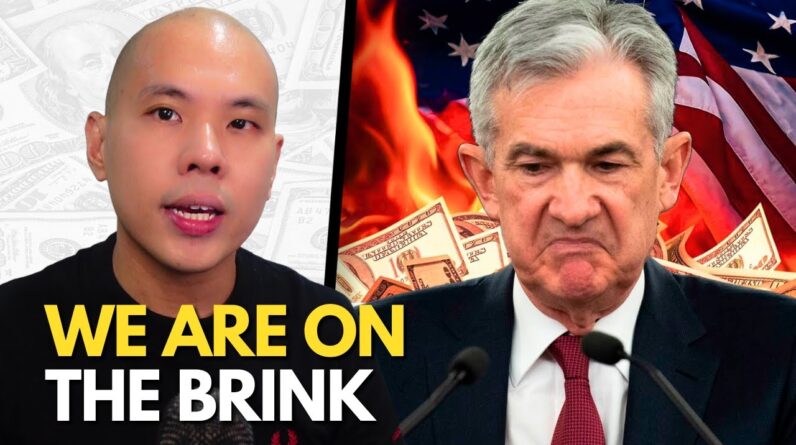In this blog post, we delve into the world of start-up investing and gain insights from a co-founder of a prominent VC fund. Exploring the minds of angel investors and venture capitalists, we aim to uncover what criteria they seek when considering investing in start-ups. By understanding their perspectives, aspiring entrepreneurs can strategically align their goals, pitch ideas effectively, and increase their chances of securing crucial funding. Discover the key factors that captivate these investment powerhouses and set your start-up on the path to success.
What Angel Investors and VC’s Seek When Investing in Start-Ups: Insights from a Co-Founder of a VC Fund
Introduction
In the world of start-ups, securing funding is often a make-or-break moment. Without adequate financial support, even the most innovative ideas can flounder. This is where angel investors and venture capitalists (VCs) come in. These individuals or firms provide the necessary capital to help start-ups grow and succeed. But what exactly are they looking for when deciding to invest in a start-up? To shed light on this question, let’s delve into the insights shared by Ian Dunlap, a co-founder of a prominent VC fund.
The Angel Investor Looks for a Strong Brand Story in a Startup
According to Dunlap, one of the key factors that angel investors and VCs consider is the presence of a compelling brand story. Start-ups that can effectively communicate their unique value proposition and connect with their target audience have a higher chance of attracting investment. A strong brand story helps showcase the start-up’s vision, mission, and long-term goals, making it easier for investors to understand and buy into the business.
The Strength of the Product and the Team are Important Factors for the Angel Investor
Beyond the brand story, angel investors and VCs also carefully evaluate the strength of the product or service being offered by the start-up. Is it innovative? Does it address a genuine pain point in the market? These are questions that investors seek answers to. Additionally, the investor will assess the capabilities and experience of the founding team. A team with diverse skills, relevant industry knowledge, and a track record of success instills confidence in potential investors.
Traction, Demonstrated Through Social Media Following or Sales, is Also Considered
For start-ups that are already operational, having tangible traction is a crucial factor in attracting investment. Traction refers to proof that the product or service is gaining traction in the market, whether through a growing social media following or increasing sales numbers. Investors view traction as an indicator of market demand and potential success, making it more likely for them to invest in a start-up that has already proven its viability.
Pre-Seed Deals are Based on Betting on the Founder’s Potential
In the early stages of a start-up, where the business is still in its pre-seed phase, investors often bank on the potential of the founder rather than fully developed products or services. Angel investors and VCs understand that at this stage, the start-up may not have a substantial customer base or revenue stream. Instead, they focus on the founder’s experience, expertise, and passion for their idea. If the founder possesses the necessary drive and determination, investors are more inclined to provide the initial funding needed to kickstart the business.
Intuition Plays a Role in the Angel Investor’s Decision-Making Process
While investors heavily rely on data and metrics to evaluate start-ups, intuition also plays a significant role in their decision-making process. Unlike purely logical decision-making models, investing in start-ups often requires tapping into gut feelings and analyzing future potential. Angel investors and VCs use their experience, industry knowledge, and personal judgment to assess whether a start-up has what it takes to succeed in the long run.
The Investor is Willing to Work with Founders Who Have Hustle and Grit
Beyond assessing the idea and the market, angel investors and VCs also evaluate the characteristics of the founder. They are particularly drawn to founders who demonstrate hustle and grit. Hustle refers to the drive and determination to overcome obstacles and get things done, even in the face of adversity. Grit, on the other hand, refers to the resilience and perseverance to keep pushing forward despite setbacks. Founders who possess these qualities are more likely to catch the attention of investors, as they are seen as individuals who can weather the challenges of the start-up journey.
Corporate Support can be Provided if the Founder has the Necessary Drive
In addition to financial support, some angel investors and VCs offer more extensive resources, including corporate support, to start-ups they invest in. This support may come in the form of mentorship, networking opportunities, or leveraging existing relationships to accelerate growth. However, it is important to note that this level of support is typically reserved for founders who have already proven their drive and dedication to making the start-up a success.
The Investor is Unable to Invest Without the Combination of Hustle and Grit
Ultimately, it is the combination of hustle and grit that seems to be the defining factor for angel investors and VCs. Without these characteristics, founders may struggle to attract the necessary investment to fuel their start-up’s growth. Investors are looking for individuals who are not only passionate about their idea but also willing to put in the hard work and tenacity required to bring it to fruition.
Conclusion
Securing investment for a start-up is a challenging undertaking, but understanding what angel investors and VCs seek can significantly increase the chances of success. As highlighted by Ian Dunlap, a co-founder of a VC fund, a strong brand story, a compelling product, traction, founder potential, intuition, hustle, grit, and corporate support all play a role in the investment decision-making process. By focusing on these key aspects, start-ups can position themselves as attractive investment opportunities for angel investors and VCs.
FAQs
- What is the importance of a strong brand story for angel investors and VCs?
- How do angel investors and VCs evaluate the strength of a start-up’s product?
- Why is traction important for attracting investment?
- What factors do investors consider in pre-seed deals?
- How does intuition influence the investment decision-making process of angel investors and VCs?










